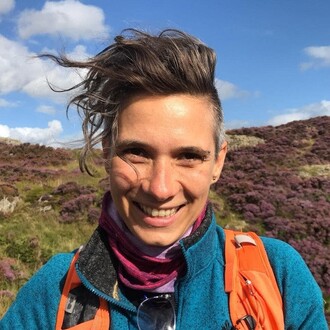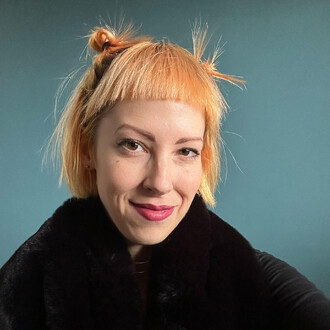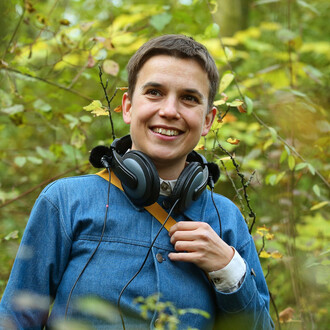The Inspiration Forum Lab is an interdisciplinary research program that connects artists and scientists in the creation of research-based multimedia projects. Its goal is to explore new ways of merging the languages of science and art, and to share knowledge with audiences across worlds that don't usually intersect.
The Inspiration Forum –a collaborative platform created by the Ji.hlava IDFF (Czech Republic), the Kersnikova Institute (Slovenia), and Sensorium (Slovakia)– are inviting applicants from the fields of art, film and design as well as scientists and experts from other disciplines to collaboratively search for imaginative responses to the structural problems facing European society. In a time of ecological, political, technological and social transformation, we are seeking alternatives to the current trajectory and new paths toward a sustainable and collective future.
We are looking for applicants who challenge the dominant narratives about the world around us and who are eager to collaborate across disciplines. We are especially interested in individuals who connect research, technology and art in the pursuit of new forms of understanding and action.
Selected participants will have the opportunity to deepen both their theoretical and technical skills through lectures and hands-on workshops. They will form three interdisciplinary teams that will engage in collaborative research and develop their multimedia art projects. The final projects will be presented at the Display Gallery and at the Ji.hlava International Documentary Film Festival.
IF Lab 2025/26 Theme:
Trajectories: Dynamics of Movement in Time and Space
The world is in motion – and so are we. IF Lab 2025/26 is inviting artists and scientists to embark on a journey through the currents of nature, time and society. Join us in mapping change and searching for new trajectories. The future has yet to be written.
In this joint interdisciplinary research, we aim to focus on exploring trajectories as both structural and metaphorical movements across time and space. We understand trajectories not only as physical paths, traces or patterns of the movement of bodies, objects, or elements of natural and social systems, but also as conceptual and data-driven traces, that reveal patterns of motion, change, and disruption in broader environmental, social, and political contexts.
To help applicants navigate this broad theme, we offer three overlapping lenses for exploration:
Environmental trajectories
Movements of water, air, species and ecosystems – and how the climate crisis reshapes the natural and human systems they flow through.
Social trajectories
Shifts in migration, power, and collective action – and how barriers (physical, legal, technological or mental) shape or redirect these movements across society.
Technological trajectories
Flows of information, energy and meaning through digital infrastructures – and what they reveal about decentralisation, control, and our interconnected futures.
These areas are not isolated. We invite applicants to follow the lines that connect them – to trace how ecological change affects migration, or how technological systems influence social cohesion and agency.
An autopoietic system, for example, allows flocks of birds to spontaneously respond to unexpected environmental obstacles, thereby maintaining their autonomy. Just as a flock of birds reacts to environmental changes without centralized control, certain social and political movements also emerge as living networks of local interactions and shared intuition. Similar patterns can also be observed in other structures – for instance, in how information spreads in the media or in the behaviour of technological networks such as distributed computer systems or blockchain architecture. A critical examination of these parallels can help us better understand the conditions that support the resilience, creativity, and viability of complex systems in various contexts.
We are interested in experimental and speculative cartographies of migrations and environmental transformations – the flow of water, air and resources, as well as movements of information, data, voices, signals and other forms of energy and meaning. We observe how climate change transforms both natural and social currents, and how new trajectories of movement are shaped through environmental transformations.
We recognize that collisions, barriers and boundaries – physical, legislative, technological and mental – play a significant role in these movements. They shape, constrain or direct movement and are themselves shaped by environmental transformations.
Trajectories can also be seen as a metaphor for power structures and their changing configurations – we can observe how power moves, decentralizes, accumulates or disappears in space and how these processes become visible or invisible while still influencing specific environments.
We are interested in anticipatory narratives of potential migration waves or ecosystem changes rooted in other dynamics, opening up new ways of thinking about verticality, horizontality, linearity or cyclicity. We seek ways to map future movements in times of climate uncertainty and shifting stability.
Key Program Tutors
Over the course of the programme, the participants will be guided by and will be able to consult with two Tutors: Lenka Hámošová and Lenka Vráblíková.
Lenka Hámošová is a visual artist and researcher working with synthetic media and the use of artificial intelligence in artistic practice. As part of her PhD studies at FAMU in Prague, she is specifically interested in the collective perspective of human-AI co-creation and experimenting with participatory approaches to AI-assisted media synthesis. She also focuses on methods of co-creation and interdisciplinary collaboration in her educational and research activities related to the activities of the Uroboros collective (Uroboros Festival), of which she is a co-founder.
She graduated from the Master's programme in Design at the Sandberg Institute in Amsterdam and in Visual Communication at the Academy of Fine Arts in Bratislava. She has taught at Prague City University, the University of Creative Communication, and the Academy of Fine Arts in Bratislava, lectures and organizes educational workshops for domestic and international institutions and is actively involved in several international projects.
Lenka Vráblíková is a theorist of contemporary art and visual culture with specialisations in transnational feminisms, political ecology, deconstruction & new materialism, critical whiteness studies in (post)socialism, and eco-feminist art pedagogy. Her current research focuses on feminist visual ethnomycology (in collaboration with Dr Elspeth Mitchell) which examines the role fungi have played in the cultural and political imagination of European heteropatriarchal coloniality. Lenka is a lecturer at the Department of Art and Visual Cultures and a member of the Centre for Art and Ecology at Goldsmiths, University of London (United Kingdom). She is also a co-founding member of transnational Feminist Readings Network, a member of the advisory board of the Centre for Arts and Ecology KAFKÁRNA (Czech Republic) and a member of research committee of Common Ground, AWARE: Archives of Women Artists, Research, and Exhibitions (France). Before joining Goldsmiths in 2021, Lenka was a Postdoctoral Research Fellow at the College of Human Sciences at UNISA (South Africa). She obtained her PhD in Cultural Studies at the University of Leeds (United Kingdom, 2017).
Who are we looking for?
- 9 participants from European countries from various fields (art, film, architecture, design, sociology, ecology, biology, technological innovation, etc.), who will form interdisciplinary teams during the project’s implementation stage. The programme is intended for those who want to experience new interdisciplinary collaboration, not for existing teams with already developed projects. The programme is especially suitable for those who are starting their careers (or their second career path) and who can dedicate time to both personal development and group work and collaboration.
- A good command of English
Eligible countries: EU member states (Belgium, Bulgaria, Czech Republic, Denmark, Estonia, Finland, France, Croatia, Ireland, Italy, Cyprus, Lithuania, Latvia, Luxembourg, Hungary, Malta, Germany, Netherlands, Poland, Portugal, Austria, Romania, Greece, Slovakia, Slovenia, Spain, and Sweden).
Conditions
- The IF Lab programme runs for nine months (from October 2025 to June 2026), with a subsequent project presentation in autumn 2026.
- Lectures and workshops will be held in Jihlava, Ljubljana, Bratislava, and online.
- Each participant will receive a stipend of 600 EUR.
- Each participant will be provided with accommodation and a contribution for travel (preferably by the most sustainable means of transport) for the meetings in Jihlava, Ljubljana, Bratislava, and the exhibition in Prague.
- Each group will have a production budget of 1,500 EUR.
Important Dates
- Application deadline: Monday, August 25, 2025
- Online interviews with selected applicants: September 15 and 16, 2025
- Expected announcement of selection results: September 24, 2025
- IF Lab program: October 2025 – June 2026
- Final presentations: September – October/November 2026
Programme and Schedule
- Introductory online meeting with the programme coordinator: October 8, 2025
- Meeting I: Five-day introductory session during the Ji.hlava IDFF, Jihlava, Czech Republic, October 23–28, 2025
This session, held as part of one of Europe’s largest documentary film festivals, will allow participants to immerse themselves in a wide range of artistic perspectives. The programme will include lectures and round tables focusing on theoretical insights related to the edition’s theme and on research and creative methods of interdisciplinary collaboration. Workshops will focus on forming interdisciplinary teams, defining research topics, and outlining artistic project formats.
- Meeting II: Four-day residency at the Kersnikova Institute, Ljubljana, Slovenia, February 3–6, 2026
The residency at the Kersnikova Institute – a platform for the development, production, and presentation of contemporary investigative art projects – will be an opportunity to deepen theoretical thinking and develop projects further.
- Meeting III: Three-day residency as part of Sensorium, Bratislava, Slovakia, June 19–21, 2026
The third meeting aims to provide critical feedback and support in the final phases of the artistic projects and their upcoming presentation in galleries or other settings. The Sensorium residency will offer a chance to present nearly completed projects to an audience of professionals operating at the intersection of art, technology, and science. Workshops and mentoring sessions will focus on strengthening the communication of each project’s core idea.
- Ongoing work and consultations (online), November 2025 – September 2026
Meetings in Jihlava, Ljubljana, and Bratislava will allow for in-person collaboration. However, a large portion of the work will occur outside these gatherings, primarily online. During the development and production phases, participants will be able to consult with tutors. There will also be three check-in sessions (online) in early December 2025, February, and April 2026 (exact dates to be announced), where participants will present and discuss their projects.
- Final Project Presentations: at the Display Gallery in Prague (September–October 2026) and during the Ji.hlava IDFF, Jihlava.
Application
All materials must be submitted in English.
- Completed application form
- CV/portfolio (PDF format, including relevant recent works aligned with the Lab's concept)
- Motivational letter (PDF format, explaining your interest in IF Lab’s theme and your motivation for participating in an interdisciplinary project)
If you have any questions, please contact us at iflab@ji-hlava.cz.
IF Lab Coordination
- Šárka Zahálková / IF Lab Coordinator
Curator, artist, cultural producer, and researcher. Her work explores themes related to public space, acoustic ecology, non-hierarchical collaboration, degrowth principles, and socio-environmental shifts in art. - Mia Kordová / IF Lab Intern
Curator and cultural producer, graduate of Goldsmiths, University of London. Interested in interdisciplinary research and the intersections of art and science, particularly around environmental themes.
Data policy
By submitting an application, you accept our data policy in accordance with GDPR.
Conclusion
Your application and participation implies unconditional acceptance of these rules and regulations. The organisers reserve the right to change the rules and regulations or processes at any time and without notification.
The Inspiration Forum Lab is organized by Ji.hlava IDFF’s Inspiration Forum in cooperation with the Kersnikova Institute, Sensorium and Display – Association for Research and Collective Practice. The project is co-funded by the European Union.
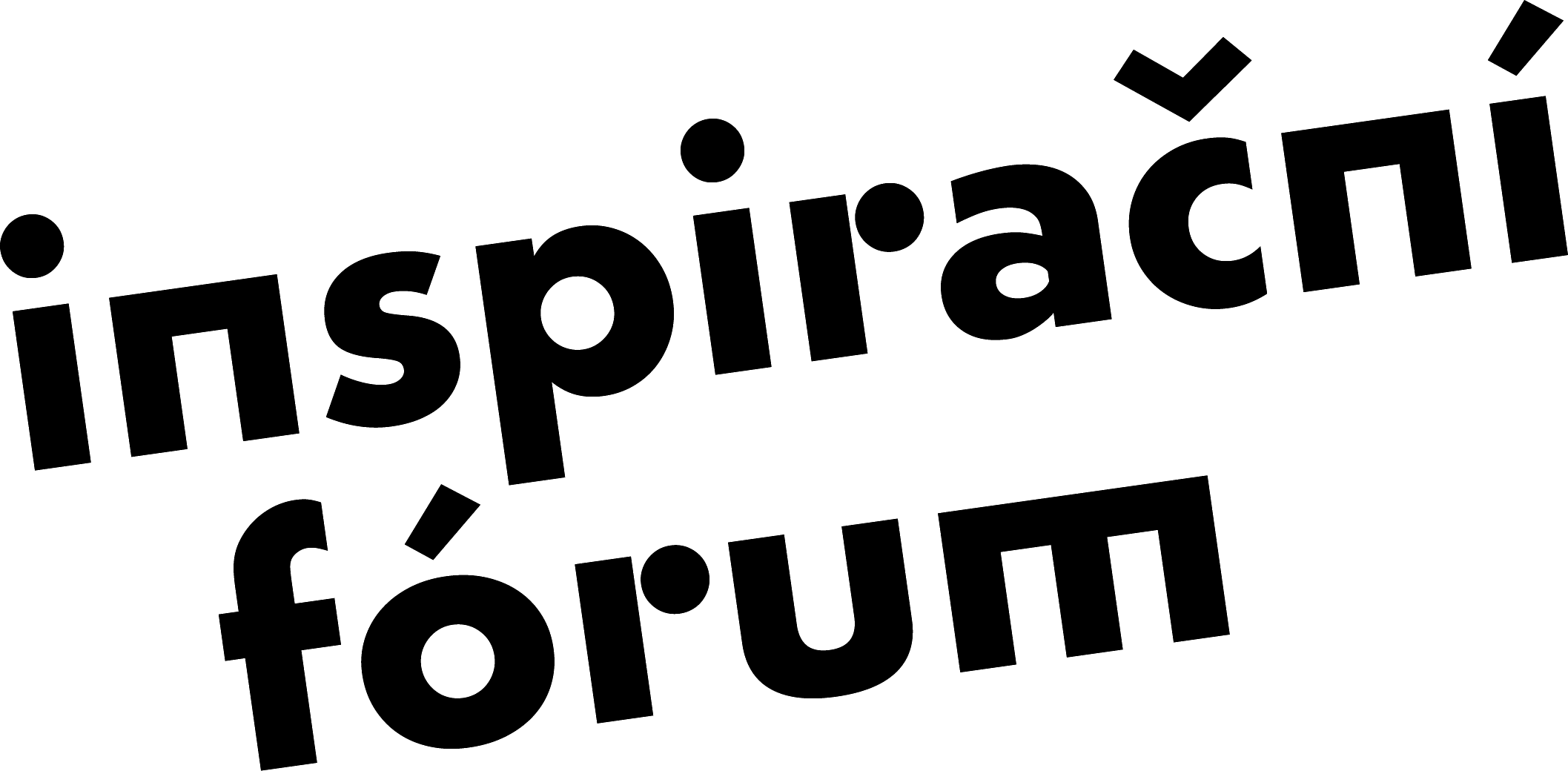 |
 |
 |
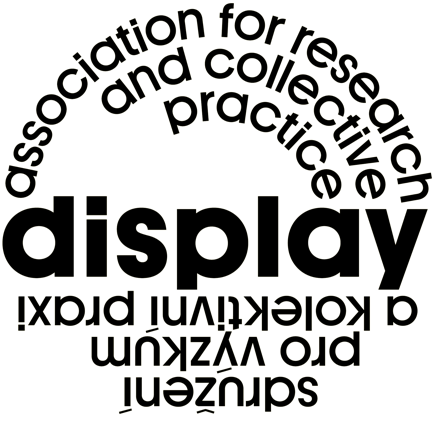 |
Co-funded by the European Union.
 |
